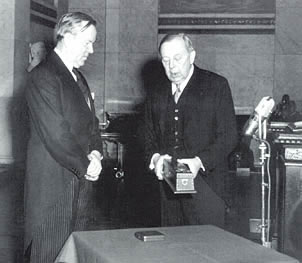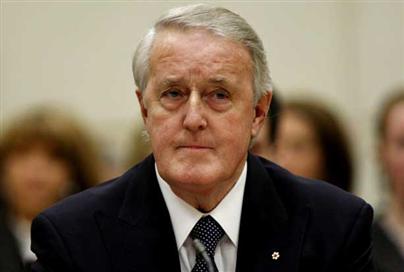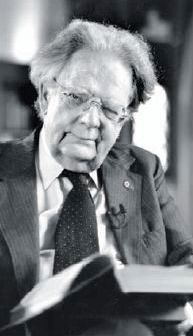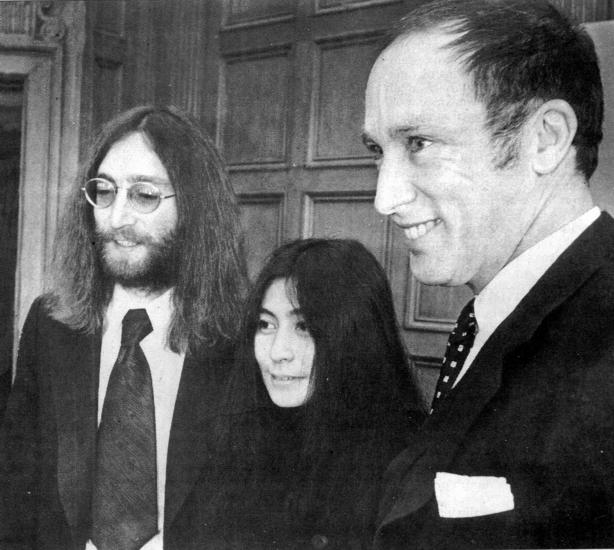httpv://www.youtube.com/watch?v=mfwVfEXJhQQ
A friend since childhood died a week ago today. I met him the first day of second grade and we were friends from then till now.
I know that this blog is not for personal disclosure. But the loss of people we love along the way until, finally, it is our turn, is something we all share. Sometimes our mortality bites down just hard enough that something gives way; the mundane becomes sinister, and our silly preoccupations seem eager to be gone because they’re leaving us one way or another. And that may make us wonder if the sources of comfort we call upon every day are illusions. Push them aside and we see where we really are, which is a transient little somewhere situated between two darknesses. Love is the gift we grant ourselves most confidently when life is sure and the end of it is still over the horizon. But push even that aside, and at some terrible proximate point there seems to be nothing at all.
Maybe this is the truth we turn away from whenever the inertia of just being alive carries us from moment to moment. It’s startling to see how short that stretch of memory — a lifetime’s worth — turns out to be. Any randomly chosen reminiscence from decades of accumulating them can, in the early stages of grief especially, be as easily plucked as a daisy in a meadow full of them. But there are still never nearly enough of them.
I know that when death came, my friend was resolute in taking hold of it. He was not a sentimental person and was not given to nostalgia, the one exception being a gruff concession to the things he could occasionally admit to love, which retained a fleeting power, like a sharp rising breeze.
He had disappeared from my life just over a year before, and then returned as the end approached. In January I posted some videos by David Bowie, half hoping he would see them, one song in particular; it was a call back to the youth we’d shared when the future had not yet devolved into a compromised and diminished present. He dropped me a line, tersely acknowledging that he’d been glad to hear the song, glad just to be reminded of it.
I knew him well, and can imagine what that last day and night might have been like. The increasingly less contingent plans patiently carried out point by point, and then the unself-pitying commitment to the last thing on his list to do. I knew him well enough also to believe that he might then have muttered a final sardonic self-deprecating remark: with your oldest friends it’s all well-understood cues, coded like the secret language of twins. I knew him well enough to believe that this might have happened. But I didn’t understand him well enough to guess how he must have felt when his determination had finally brought him to the last place where a choice had to be made. I am sure he was fearless. But the loneliness and the remoteness of it are unimaginable. However, this was his moment, and he made sure he experienced it alone.
He likely wouldn’t have been thinking at any point that day about the note he sent me back in January, or even of our two brief meetings in the last month, the second of them just the week before, which, it turns out, were simply last stops along the way. He had too much to keep in order, and had besides to maintain the resolve of someone who is in pain but not afraid. Those last modest exchanges of affection between us were just a late bit of ephemera in a life that was by now defined by loss. We sometimes have good reason to believe that unlooked-for joy might open up into an expanded life, but those moments elude those who are born in pain and who still have a life to live. I dwell upon this, not just because I’m grieving or because I am sentimental in a way my friend was not, but because in his small expression of happiness at hearing a song that stretched far back into a youth where everything was still possible, he was within reach one last time. After that, he somehow forgot how much he was loved.
I know that this reflection will not register as a matter of significance to most, and it is a common fate to be forgotten. But, as surely as my friend found death to be the companion he sought, I hold on to my love for him as someone I can never wholly lose. Beyond that I do not know. His life is in the love he leaves, if only between two darknesses.
Above is David Bowie’s “All the Young Dudes,” performed by Mott the Hoople — a band whose albums my friend in his teens continued to buy in the hope they could match this song. If you know it, you know that there’s an undertow of melancholy in it; it’s a rock ‘n’ roll anthem to the passing of things. What makes their passing bearable is the hope that they might not disappear completely. All the young dudes carry the news. My much beloved friend was one of them, and he always understood the news is never unambiguously good or bad. He was my traveling companion for four decades, and for most of that time capable of bearing the pain that overtook him year by year. It is not false comfort to know that, with a little less pain and a little more luck, he might have continued to do so. It is the news I carry.



